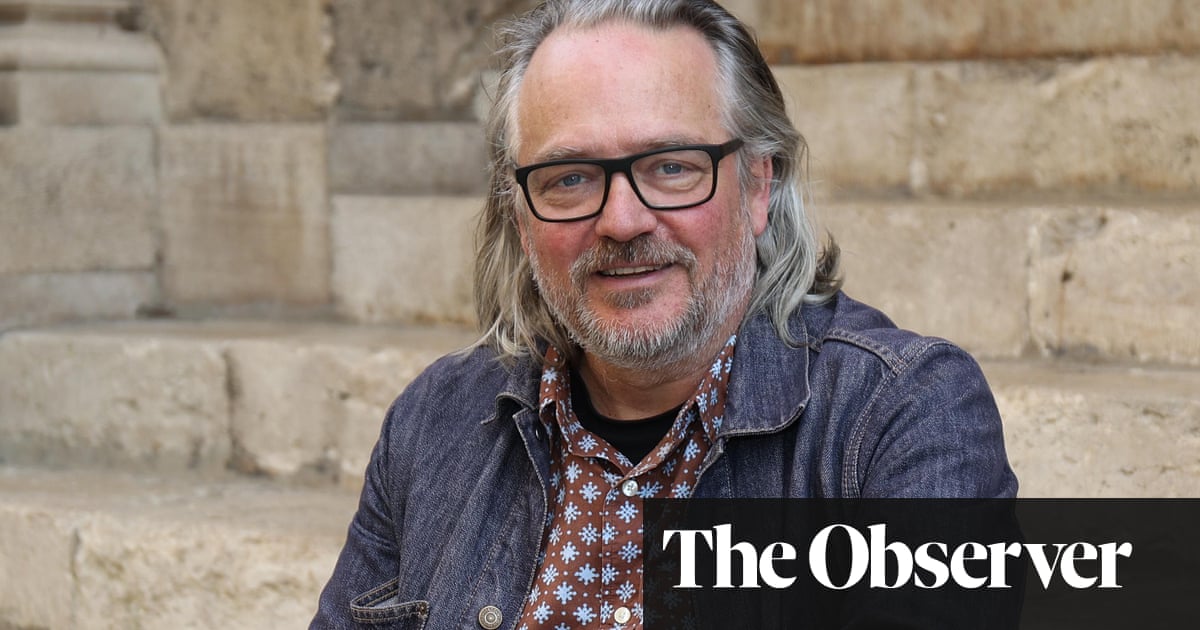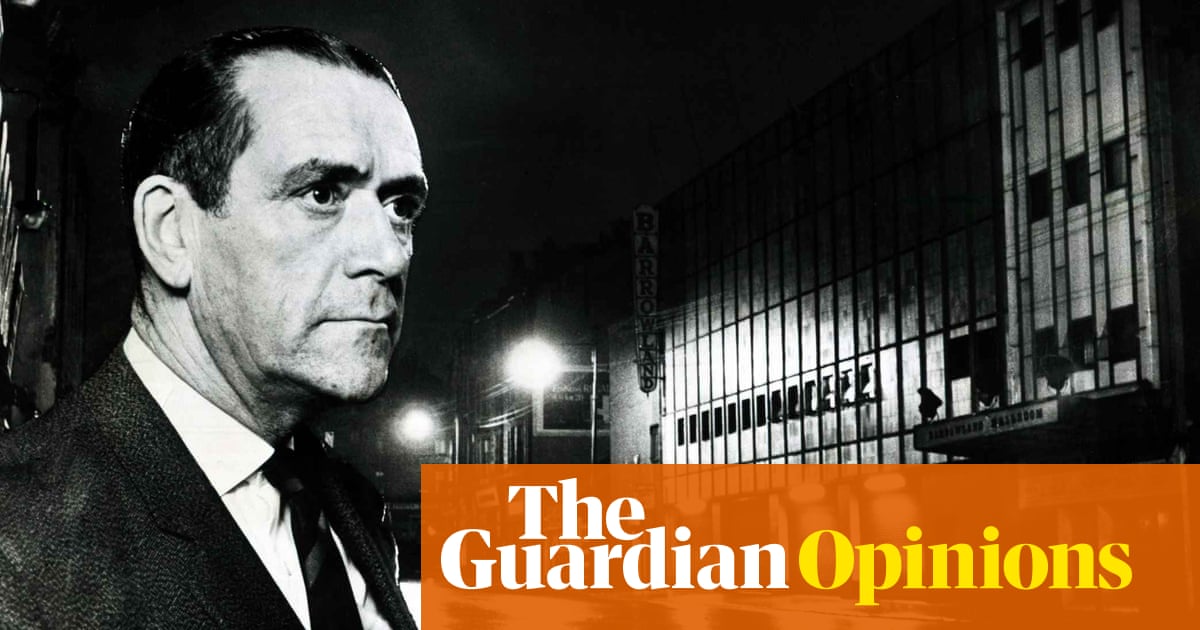
averne Cox knew she was different because everybody told her so. She was eight when a teacher called to warn her mother, “If you don’t get your son into therapy right away, he’s going to end up in New Orleans wearing a dress.” This was Alabama, 1980, and Cox was escaping bullies every day. At 11 she attempted suicide. The bullying continued when she moved to New York in her late teens – by day she’d get harassed in the street, but by night, on stage at Lucky Cheng’s drag bar, she was celebrated, a queen. It was here that she began her transition, and it was only after wrapping season one of Orange is the New Black in 2013 (where she played Sophia Burset, a trans woman sent to prison for credit-card fraud, committed to fund her gender-reassignment surgery) that she finally quit the night job and leaned into her new life – as the most famous trans actor in the world.
Today, Cox is applying hand cream in her hotel room in readiness for her first interview of the day. “OK!” She is used to this by now, to people wanting her to tell her story again, in her kind and clever way. In the years since she started acting she has become the first openly trans- gender person to be on the cover of Time magazine, the first to be nominated for a Emmy, the first to have a waxwork in Madame Tussauds and the first to appear on the cover of British Vogue – chosen, no less, by Meghan, Duchess of Sussex. “So where should we start?” she asks, smiling with teeth.
Over the next 60 minutes she talks about attachment theory, somatic therapy, an emotionally abusive ex, debt, her residual shame around class, the comedian she once dated whose comments on her tiny apartment are still triggering, her mother, structural racism through residential segregation, her twin brother M Lamar (who played Sophia pre-transition in OITNB), white supremacy, the brilliant documentary on trans representation she executive produced, and her role as Carey Mulligan’s best friend in the (also brilliant) new film Promising Young Woman. She cries once, she laughs twice, her internet connection fails once and, half an hour in, she pauses and smiles, “This is going to be an interesting interview for you to transcribe, right?” Right.
Last November, Cox was walking with a male friend through a park in Los Angeles when a stranger approached and aggressively asked if she was “a guy” before launching at her friend. She posted an Instagram video right after the attack, when she was still in shock. I wondered why she had shared it, and so quickly. “I listened to my gut,” she says, firmly. “I think people assume that if someone is famous, then these things can’t happen to them. I shared it because violence against trans people is pervasive – that last year was the deadliest year on record for trans people. And I thought if people knew that this happened to someone they’re familiar with, maybe it would hit them differently. I shared it because I wanted to talk about trauma. And I want to talk about shame.”
Growing up, she learned not to tell her mother that she was being bullied, because she would be blamed for not fighting back. “It was interesting; after this incident, that was the thing I was publicly shamed for again. And then some people assumed I was lying as well, which is…” She whistles dramatically. “I wish it hadn’t happened. I wish it hadn’t happened my whole life, that it wasn’t happening to trans people all over the world. I really do.”
The attack came only months after the release of Disclosure, the documentary that unspooled trans representation on film and TV. There, Cox reminded an audience that, while mainstream visibility in the form of characters like Sophia Burset is welcome, it’s important not to blindly celebrate it when, “a few people are elevated and the majority of people are still struggling”. She joins the dots between racism and gender and representation with a pencil so sharp it scars. While the average actress might feel a responsibility, perhaps, to wear a dress by an ethical designer, Cox, as has always been clear, is different. She has the added responsibility of trying to save a life.
Surely it must be exhausting, to be invited daily to perform her special brand of professional vulnerability. “Well…” When she first became famous she would get a call to help whenever “something horrible happened to another trans person”. Since 2013, more than 130 transgender and non-binary people have been killed in the United States – transgender women of colour are disproportionately affected by fatal violence. So she would get a lot of calls. And she would tweet, or fly to speak somewhere, or do a press conference, or march. One month in 2014 she had more than 20 speaking engagements; that year she burned out. Now, when somebody calls with a request, she pauses. If her body tenses up, “releasing stress hormones”, she says a regretful no. “The level of responsibility I feel as a public figure has evolved a lot. Now I know I have to put the oxygen mask on myself first before I assist others.” But even when she says nothing, her presence has an impact.
“Laverne is an extraordinary and singular talent,” her friend Natasha Lyonne told me in an email. “When we first met on Orange, I gravitated towards her for being so striking and radiating such charisma. But what drew me in was spending quiet time together in our dressing rooms and discovering what an endless well of a soul she has, and how deep and safe her inner world is.” Cox is preparing to invite more people into this inner world, with the launch of a podcast under Shonda Rhimes’s Shondaland umbrella. Researching the episodes, she’s digging into her many years of therapy, interrogating American politics and lingering white supremacy. “I’m on a journey of self-discovery. And maybe folks can come on that journey with me,” she says, in her best podcast voice.
We’re speaking on the final day of Donald Trump’s presidency and there is an oddness to the air, a sort of hopeful humidity. “I don’t say that person’s name,” Cox says chasteningly. “I refer to them as 45. The 45th president.” Does she feel hopeful about the future?
I’ll admit, I was expecting, if not a whoop then at least a smile. Instead, she sighs. “When the United States got our first black president, a lot of people thought, ‘Oh, racism is dying.’ And I think we’ve learned quite the contrary.” She raises her chin. “When I think about this administration ending, I think about trauma. There’s collective trauma around the pandemic, there’s collective trauma around the gaslighting, the lies… There’s a lot of healing that has to happen on a psychological level. There’s a lot of damage that’s been done politically. It’s always important to remember 45 is the symptom. But he’s not the cause. There was an environment created for someone like 45 to come along. It would be very naive to assume that just because this president has left the office, all the reasons why he became president in the first place left with him. If we don’t address them, then it can get much, much worse.” We take a small break. Breathe in through the nose, out through the mouth. She smooths her hair.
“And speaking of trauma!” I offer, cheerily… Promising Young Woman is a pastel-tinted feminist revenge thriller by Killing Eve showrunner Emerald Fennell, the story of Cassie, a woman who sets herself up as bait in nightclubs, forcing men to face the pain they’re capable of inflicting. Cox plays her only friend – this is the first major role where neither her race nor her gender are part of her character. “I knew I had to be in this film. As well as trauma it’s about grieving. It’s about justice and vengeance. Thinking about how Cassie deals with trauma was so interesting to me – there’s a part of her that shut down. There’s another part of her that’s set upon getting a sense of justice. I thought, maybe that could be kind of cathartic to see in a film, right?” Is she a vengeful person? “I don’t physically fight – I fight for my rights! I don’t want drama in my life. But I want lots and lots of drama in my art.”
For all the horrors of American politics she details, they can appear more progressive than the UK in terms of trans rights. Does it look odd from over there, our ongoing “debate” about what a woman is? “In the UK, they’re not just pitting trans people against feminists, they’re passing policies, right?” In December, judges declared that trans children were unlikely to be able to consent to hormone blockers, putting the UK at odds with international trans healthcare guidelines. Cox says that much of the noise surrounding the case came from “trans-exclusionary radical feminists, and I know some find the term offensive, but a myth has been created that women’s spaces or sports are threatened by the presence of trans women. It’s a brilliant example of divide and conquer. It’s really deep that these feminists find themselves aligned with right-wing ideologies. That would disturb me!” She chuckles thinly, then turns back to me, deadly serious. “In the US during Jim Crow a lot of white people were very uncomfortable using the same bathrooms as black people. But it did not make them unsafe.” A significant pause. “We have to be able to ask ourselves, ‘Am I feeling uncomfortable or am I feeling unsafe? And is my uncomfortability going to impede on the rights of other people?’”
Cox lives alone in Los Angeles, and at the beginning of the first lockdown she had great plans for self-improvement. “I remember thinking, ‘This is a spiritual opportunity.’” She hoots. “Ha! Oh Laverne, you’re so full of it! Turns out it was the hardest year of my life. When I’m alone I can be really hard on myself.” What happens? “I’ve caught myself saying the most atrocious things to myself, things I would never say if I was out in the world. ‘You’re so ugly…’” She tails off. “Vicious, cruel things. Things that, if I said them to a child, then the child would be taken away from me. But, we all have a child inside us, so…” I realise with a start that she’s crying. She pauses, nods, as if to a silent beat, and wipes a tear from behind her round glasses.
“I can’t bear how cruel I’ve been to that little girl. It’s not fair to her – she deserves so much better. It’s so hard for me not to blame her, not to shame her when she hasn’t been perfect. So this ‘spiritual opportunity’ is confronting how cruel I’ve been to myself. I’ve known how hard I can be on myself for about 10 years, but I can only say it now.” What happened 10 years ago? She laughs darkly. “Ten years ago in an acting class the teacher had me take on the persona of the bitchiest queen from RuPaul’s Drag Race and then have me ‘read myself’, externalising my negative self-talk in front of the class. When he said ‘cut’ I broke down in tears. And then he had me do it for eight weeks in a row.”
Why does she do this to herself? “It comes from a shameful place. I think this’ll keep me safe. I think perfectionism will keep me from being judged, or harmed. It’s self-protection. But, unfortunately bad stuff still happens if you’re perfect. Me being visible is not keeping trans people from being murdered. So… I need to be gentler.” She smiles, quietly. “Sometimes I manage.”
What helps? “This sounds so corny…” I wait. “OK. I stand by the mirror and say, ‘You’re so amazing.’” She closes her eyes. “I say, ‘You got through that, that’s incredible. So many people are still struggling in ways you don’t struggle any more. You’ve accomplished so much, you’ve grown so much. So many trans people have said their lives are better because of you.’” She exhales as if she’s been holding her breath since that first acting class, and wipes another discreet tear. Her voice breaks, but only slightly. “I stand in the mirror and say, ‘Laverne, you should be so proud.’”
Disclosure is streaming on Netflix. Promising Young Woman is coming soon
Styling by Christina Pacelli for The Only Agency, assisted by Marissa Perez; hairstylist Kiyah Wright for Hair; makeup by Deja Smith for Criterion Group Using Koh Gen Doh, Danessa Myricks, Fenty Beauty, MAC Cosmetics and Anastasia Beverly Hills. Photographer’s assistants Byron Nickelberry, Sebastian Keefe and John Batchine; set design by Daniel Horowitz












